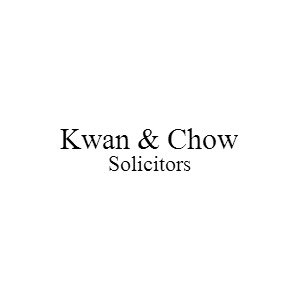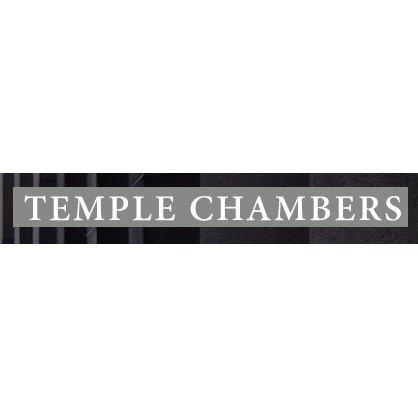Best Corporate Governance Lawyers in Hong Kong
Share your needs with us, get contacted by law firms.
Free. Takes 2 min.
Or refine your search by selecting a city:
List of the best lawyers in Hong Kong
About Corporate Governance Law in Hong Kong
Corporate governance refers to the set of systems, principles, and processes by which companies are directed and controlled. In Hong Kong, corporate governance is essential for ensuring that companies operate transparently, ethically, and in compliance with local regulations. Good corporate governance helps protect the interests of various stakeholders, such as shareholders, employees, customers, and the broader community. As one of Asia’s leading financial hubs, Hong Kong upholds stringent corporate governance standards to maintain market integrity and investor confidence.
Why You May Need a Lawyer
There are numerous situations where seeking legal advice on corporate governance becomes crucial. Common instances include:
- Establishing a company and setting up governance frameworks
- Drafting or reviewing company constitutions, articles of association, or shareholder agreements
- Dealing with disputes among shareholders or directors
- Ensuring compliance with listing rules and disclosure requirements
- Assessing directors’ responsibilities and potential liabilities
- Conducting internal investigations into breaches of governance
- Responding to or managing regulatory inquiries from authorities
- Advising on mergers, acquisitions, or company restructuring where governance implications arise
A qualified lawyer can help navigate complex regulations, minimize risk, and safeguard the reputation and interests of both the company and its stakeholders.
Local Laws Overview
Hong Kong’s corporate governance framework is primarily grounded in the Companies Ordinance (Cap. 622), the Securities and Futures Ordinance (Cap. 571), as well as the Corporate Governance Code issued by the Hong Kong Stock Exchange. Key aspects include:
- Board Structure and Duties: Directors owe fiduciary duties to act in good faith, prioritize company interests, and avoid conflicts of interest.
- Shareholder Rights: Shareholders are entitled to fair treatment and key decision-making processes, including voting rights in annual and extraordinary general meetings.
- Disclosure and Transparency: Mandatory disclosure of financial and non-financial information to ensure stakeholders can make informed decisions.
- Regulatory Compliance: Listed companies must comply with the Corporate Governance Code, while all companies are subject to the Companies Ordinance and related legislation.
- Internal Controls: Implementation of audit committees and risk management systems for accountability and oversight.
Frequently Asked Questions
What is corporate governance, and why does it matter in Hong Kong?
Corporate governance refers to the rules and procedures through which a company is controlled and directed. In Hong Kong, strong governance supports transparency, fosters investor confidence, and reduces the risk of misconduct.
Who regulates corporate governance in Hong Kong?
Hong Kong’s primary regulators include the Companies Registry, the Securities and Futures Commission, and the Hong Kong Stock Exchange. Each plays a role in enforcing corporate governance laws and standards.
Are private and public companies subject to different governance standards?
Yes, public companies, especially those listed on the Stock Exchange, face more stringent corporate governance requirements than private companies. However, all companies must follow the Companies Ordinance.
What are the core duties of directors under Hong Kong law?
Directors are required to act in good faith, promote the company’s success, exercise care and diligence, and avoid conflicts of interest. Failing to fulfill these duties can result in personal liability.
What is the Corporate Governance Code?
The Corporate Governance Code is a set of guidelines issued by the Hong Kong Stock Exchange for listed companies. It includes principles and recommended practices to promote board effectiveness, accountability, and transparency.
What are the consequences of poor corporate governance?
Consequences can include regulatory sanctions, penalties, reputational damage, civil lawsuits, or even criminal liability for serious breaches.
How often must companies hold shareholder meetings?
All companies must hold an annual general meeting at least once every calendar year, as stipulated in the Companies Ordinance.
What is meant by disclosure requirements in Hong Kong?
Companies must provide timely and accurate information about financial performance, board decisions, and other material matters to shareholders and the public.
Can shareholders propose resolutions or challenge board decisions?
Yes, shareholders can propose resolutions and challenge decisions through general meetings, subject to procedural requirements outlined in the Companies Ordinance and company articles.
What should I do if I suspect a breach of corporate governance in my company?
You should consider seeking prompt legal advice to understand your rights and obligations, report the matter internally, and, if necessary, notify regulators to protect your interests and comply with the law.
Additional Resources
For more information, consider consulting the following resources:
- Companies Registry of Hong Kong for official guidelines and filings
- Hong Kong Stock Exchange for the Corporate Governance Code and regulation updates
- Securities and Futures Commission for information on compliance and enforcement
- Hong Kong Institute of Chartered Secretaries for best practices, seminars, and professional support
- Law Society of Hong Kong for finding registered legal practitioners
Next Steps
If you require legal assistance with corporate governance matters in Hong Kong, begin by identifying the specific issues or questions you face. Compile all relevant documents, such as company constitutions, meeting minutes, or correspondence. Next, contact a qualified lawyer specializing in corporate law and governance, who can assess your situation and advise on suitable actions. For complex cases, consider seeking lawyers with experience in resolving corporate disputes or dealing with regulators. Timely professional guidance can help you avoid costly errors and ensure your company remains compliant with local laws.
Lawzana helps you find the best lawyers and law firms in Hong Kong through a curated and pre-screened list of qualified legal professionals. Our platform offers rankings and detailed profiles of attorneys and law firms, allowing you to compare based on practice areas, including Corporate Governance, experience, and client feedback.
Each profile includes a description of the firm's areas of practice, client reviews, team members and partners, year of establishment, spoken languages, office locations, contact information, social media presence, and any published articles or resources. Most firms on our platform speak English and are experienced in both local and international legal matters.
Get a quote from top-rated law firms in Hong Kong — quickly, securely, and without unnecessary hassle.
Disclaimer:
The information provided on this page is for general informational purposes only and does not constitute legal advice. While we strive to ensure the accuracy and relevance of the content, legal information may change over time, and interpretations of the law can vary. You should always consult with a qualified legal professional for advice specific to your situation.
We disclaim all liability for actions taken or not taken based on the content of this page. If you believe any information is incorrect or outdated, please contact us, and we will review and update it where appropriate.
Browse corporate governance law firms by city in Hong Kong
Refine your search by selecting a city.














